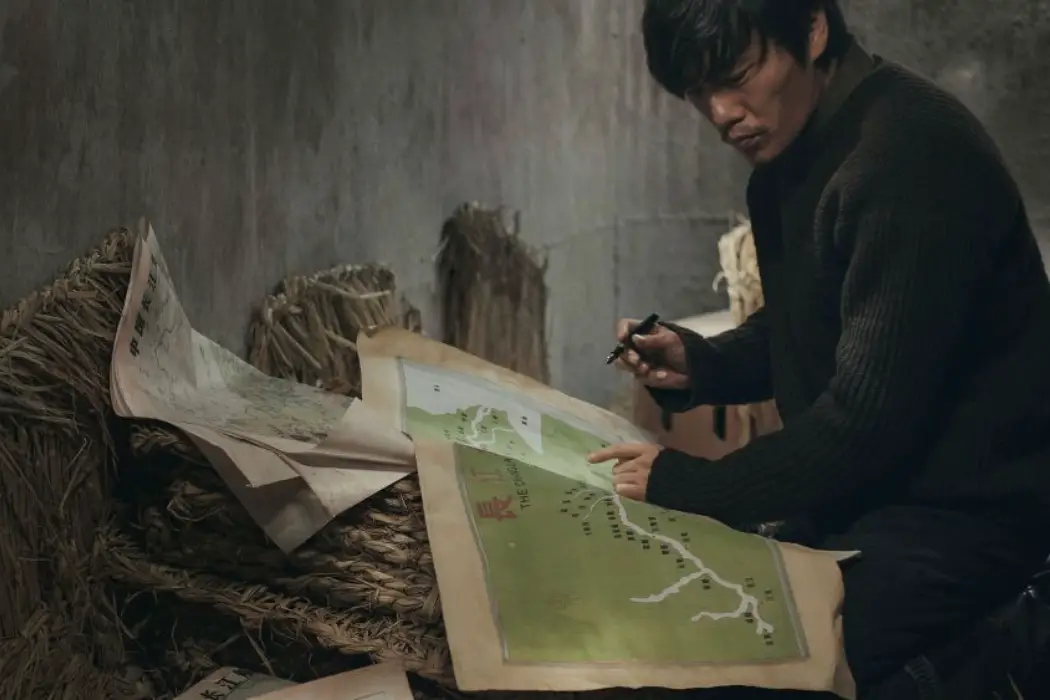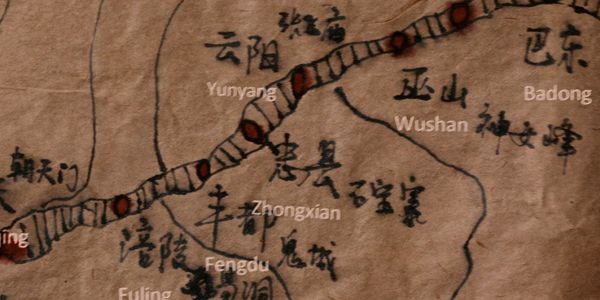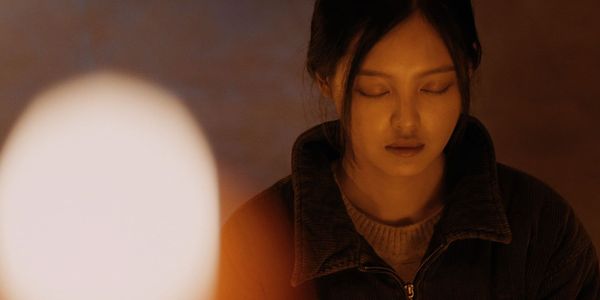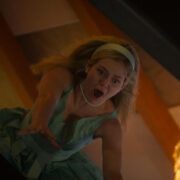CROSSCURRENT: Where Does The River Flow?

Soham Gadre is a writer/filmmaker in the Washington D.C. area.…
A lot of good cinema happens to take its cues from poetry rather than from prose. The reason I consider for this is because poetry is not held by a logical progression of ideas. It intimates a central theme through loosely flowing phrases and segments, working together in a way that novels cannot afford without being totally incomprehensible and impenetrable. With an awareness of its own structure and limitations, it proceeds to take advantage of, deconstruct, and sometimes, in the case of E.E. Cummings, outright abuse human language and grammar.
Trying to Be Poetic…
Yang Chao’s Crosscurrents attempts to outline its central themes on ambiguous terms and a structure that wants to flow like poetry. It even uses poetry as the marker of each “chapter” of its journey. It’s an intriguing concept of a film, focusing on the travels of a local shipping captain named Gao Chun (Hao Qin) upstream on the Yangtze river who, at each stop, encounters variations of the same woman. The metaphor here is something along the lines of a journey through love.

The clear inspiration from Hou Hsiao-hsien’s Three Times and Wong Kar-wai’s In the Mood for Love (which has the same producer) is prevalent throughout the movie’s use of time as and age as an ambiguous construct. The woman Gao Chun meets seem to decrease in age as he continues following her.
…But Falling Flat
We don’t know how much time exactly passes from one stop to the other and we don’t really have a sense of direction. In a sequence in a pagoda, Gao Chun follows heavenly voices up the stairs only to realize the conversation was happening below him. The monk informs him that’s the way sound works in a pagoda. His mis-communications with the mysterious woman, who he attempts to piece together using scraps of poetry he finds, grow larger in length and time as the journey continues. Soon, the woman stops showing up at all.
The mystery really ends there however, because by the time we begin to see a repetitive but meandering nature to the film’s flow, the poetry within it is gone. Lengthy beautiful shots of the Yangtze River banks and romantic scenes lit with an orange fire illuminating a blue-ish green nightscape harkens back to Tsai Ming-liang’s Goodbye Dragon Inn. Despite the movie’s clearly inspired aesthetic the themes never get sewn together.

Crosscurrent: A Grand Anti-Climax
The direction of the journey doesn’t match the aimlessness of the movie’s central point. It’s not a sin to have a movie that doesn’t lead anywhere, but Crosscurrents is constantly indicating a direction to follow along to. Gao Chun finds bits and pieces here and there, clues strewn throughout his journey to lead him to a greater purpose that simply never reveals itself.
For a movie aching with a sexual tension and a passionate love which is initiated in a beautifully-lit sex scene early throughout the film, the movie grows increasingly inert as it drags on. Few moments of real emotion are peppered very sparsely through the film, like Gao’s brother blowing up at him and his uncle for having to do all the work. It’s the only part of the movie that really stirs any conflict or reveals any sense of character within the movie, which seems to be populated by ghosts simply floating past each other.
Jonas Mekas described much of the pioneering avant-garde cinema as being poetic. Driving emotions from the juxtaposition, re-arrangement, blending, and folding of images. If narrative cinema wants to evoke this, it must do so with images in unison of bodies which inhabit them. With faces and words which flow steadily and even in their whispers and subtlety reveal grand ideas and emotions be they love, resentment, or despair. As much as Yang Chao’s film has the look of a beautiful mystery, and as much as it may quote and stamp poetry on its canvass, its quietness remains quiet and unnoticed, and like Gao’s journey up the Yangtze, it doesn’t manage to lead anywhere.
Have you seen Crosscurrent? What are your thoughts? Let us know in the comments below!
Does content like this matter to you?
Become a Member and support film journalism. Unlock access to all of Film Inquiry`s great articles. Join a community of like-minded readers who are passionate about cinema - get access to our private members Network, give back to independent filmmakers, and more.
Soham Gadre is a writer/filmmaker in the Washington D.C. area. He has written for Hyperallergic, MUBI Notebook, Popula, Vague Visages, and Bustle among others. He also works full-time for an environmental non-profit and is a screener for the Environmental Film Festival. Outside of film, he is a Chicago Bulls fan and frequenter of gastropubs.













